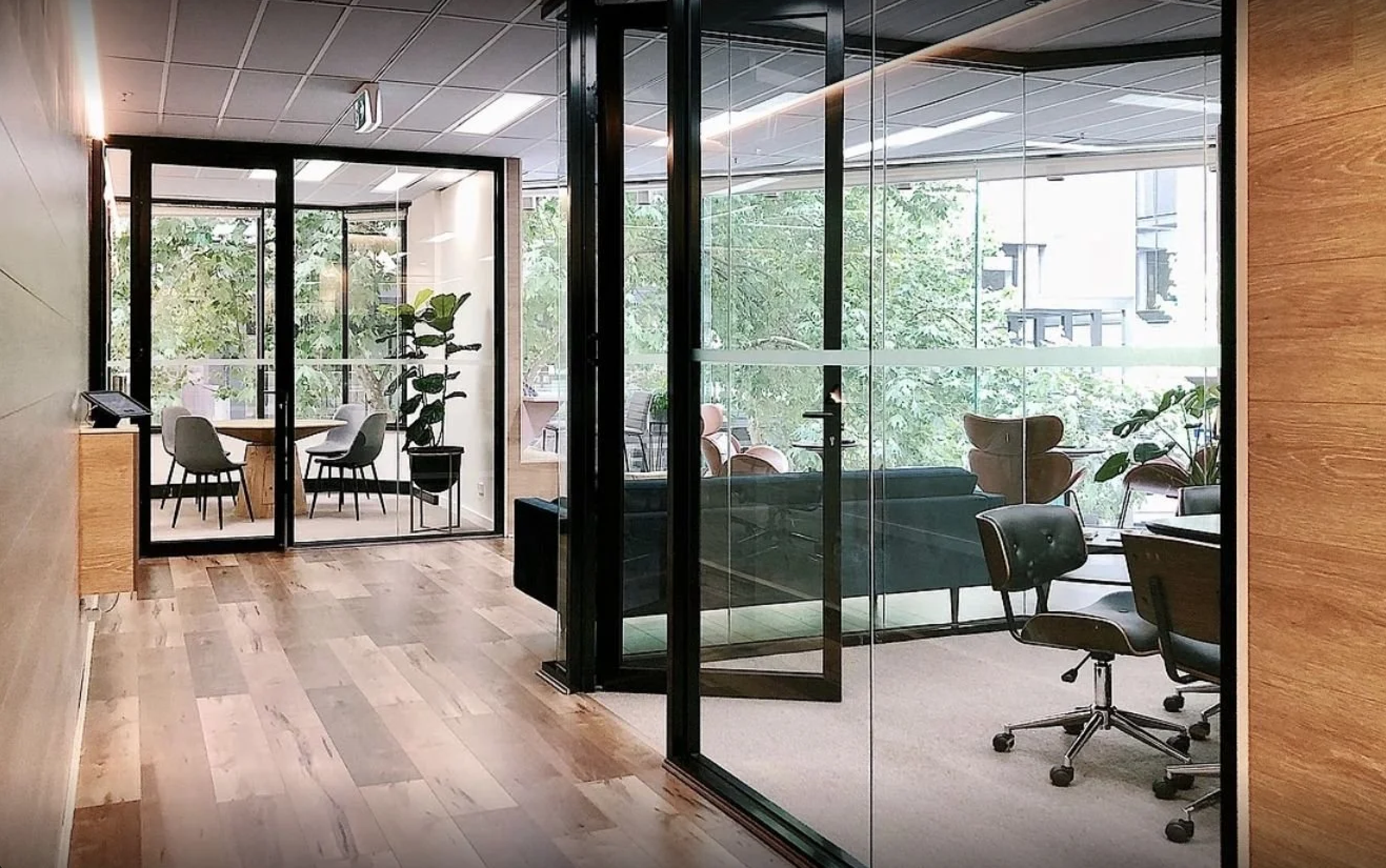Keturah Phelps: Her Name Says It All
Authors: Jessica Woodyatt & Jasmine Lay
Interviewers: Nelson Thomason, Jasmine Lay & Jessica Woodyatt
Keturah Phelps, a Succession Lawyer at a boutique firm Nathan Yii Lawyers, has carved out a role focused on disputes, showing us what it means to thrive in the close-knit world of boutique practice. In this interview, she shares her journey from growing up in rural Victoria and how she has built her legal experience in Melbourne, shaping a career defined by passion for the law, and compassion for the people within it.
Chapter 1: Planting the Seed
Keturah didn’t always have her sights set on law. In high school, she thought she might become a teacher. But the idea of law was planted early, with her friends and family teasing her with, ‘Why do you have to argue so much? Why are you so argumentative?’
The seed became real at fifteen, when her father suddenly passed away. In a small rural town with no prior exposure to the legal system, Keturah and her family found themselves sitting in lawyers’ offices, trying to make sense of her dad’s estate. The experience left her with compassion for those facing loss while also wrestling with what she describes as a system that can be ‘quite ridiculous at times.’
Her draw to Succession Law deepened years later, studying the elective at Monash University. She was fascinated by the ‘intersection between so many subjects’ such as property, equity, trusts, criminal law, business law, administration, and corporate law. But beyond the intellectual breadth, it was the human side that captured her. ‘I like the human experience,’ she says. Being able to have a great ‘person-to-person connection’ where she can collaborate with her colleagues and clients, while also being clever and creative in her legal reasoning were huge draws to Succession Law.
Chapter 2: From Rural Town to City Life
Before moving to the city, Keturah grew up in the rural town of Gippsland. Leaving home to study at Monash University was no small step, but it marked the beginning of a new chapter. Back in Year 12, she had thrown herself into theatre, joining a youth theatre group where she performed in an adaptation of Much Ado About Nothing and even took the stage at a Shakespeare festival in Stratford. The performance was so well received that the group earned the chance to perform in the UK. It was a highlight she still remembers fondly.
After falling just short of the ATAR required to study law directly, Keturah began with an Arts degree at Monash. Determined to make the switch, she worked hard, built up her WAM, and eventually transferred into Monash Law while continuing with her Arts degree on the side. She shifted her focus to a major in Literary Studies and a minor in Theatre, blending her love for performance with a discipline that sharpened her writing.
Looking back, she says the double degree became a kind of ‘buffer,’ teaching her how to balance different workloads and juggle competing demands. That experience, she believes, laid the groundwork for success in practice. Literary Studies, in particular, gave her a solid foundation in writing. This is a skill she recognises as one of the most challenging but vital parts of a legal career.
Chapter 3: Legal Experience from Paralegal to PLT
During university, Keturah first stepped into the legal world as a paralegal at Landers & Rogers. She was brought on for a particular file they were running involving trusts, deeds and constitutions. Her job consisted of doing thorough checks of the AI summaries and ensuring that they were accurate. She notes that this was a very unique paralegal role, with it being entirely remote and revolving around one particular file.
After graduating, Keturah immediately started her Practical Legal Training (PLT) with Leo Cussen. Structured around rotations through different areas of law, the PLT placed students in simulated practice with ‘fake’ files and compulsory tasks, alongside electives. ‘PLT was great!’ She says, adding that it’s something students can genuinely look forward to.
Chapter 4: Boutique Culture
Keturah found her first full-time legal role by scrolling through the PLT Career Board and sending in an application. Soon after, she stepped into the world of Succession Law in a boutique law firm. While she describes herself as ‘a competitive person’, she is quick to draw the line. She says, ‘No thank you,’ to competing with colleagues over work, the kind of atmosphere she associates with larger firms. As such, a boutique firm was a perfect environment for her.
In a boutique, Keturah says, the learning curve is steep in the best possible way. Instead of being tucked away at the back doing grunt work or lumped in with the paralegals in a large firm, she gets to roll up her sleeves drafting letters, appearing in court, and working side-by-side with a highly respected principal Nathan Yii. Working in a boutique firm ‘can just be the world changing experience that you need,’ she reflects.
There’s also the culture. Her office shares space with another boutique practice – five lawyers there, plus her own firm — and together the juniors make up a lively, social crew. Lunch isn’t a lonely desk affair. It’s everyone around the table, trading stories and laughter.
Of course, Keturah admits the boutique life has its limits. The practice areas are narrow, and there aren’t different teams to bounce ideas off. In a tiny group (say two lawyers, a paralegal, and a principal) the dynamics could feel awkward.
But for now, the trade-off is worth it. Keturah relishes the hands-on exposure, the quicker and more involved feedback, breadth of experience and the harmony of a close-knit team. For a junior lawyer, she says, ‘I definitely wouldn’t say don’t try… get[ting]… experience in a boutique firm.’
Inside Nathan Yii Lawyers’ firm.
Chapter 5: Estate Planning: More Complicated Than You Realise
Ask Keturah about the biggest myths in her field and she doesn’t hesitate. The first? That making a will is cheap. It can be cheap, but it really depends on your objectives, she says.
She points to the popularity of template or post office wills, which can lull people into a false sense of security, especially when these templates come from registered charities. ‘That’s usually not the case,’ she informs. A lot of the time it comes down to the advisors you have. People think as long as they have a will, that’s enough. But they often don’t understand any complex nuances of their estate, such as having a company involved would not be a ‘simple’ will.
There are also clear trends. One of the most common mistakes Keturah sees is people leaving it too late. Some assume dying without a will is no big deal where intestacy laws will sort it out. And sometimes that works fine. But, she warns, by the time some people finally do seek advice, their structures are so entrenched that ‘it’s incredibly difficult to make everything work.’
Others may forget the bigger picture. How estate planning intersects with family law, such as new marriages or separations, or how powers of attorney might be just as important as the will itself. ‘No one really thinks about the possibility that they might lose capacity in their lifetime,’ she reflects.
Chapter 6: Advice for Students
Reflecting on her journey, Keturah is generous with advice for those coming up behind her. First and foremost, cultivate interpersonal skills. As an introvert, she admits she still gets nervous meeting clients and expects imposter syndrome will linger. But, she insists, experience makes the difference. ‘Whether it be through placements, or just unpaid experience in a law firm, or talking to lawyers about the different kinds of correspondence they exchange.’
Another skill she champions is legal writing. At university, students become ‘heavily engrained in comprehensive writing,’ but this can make written correspondence in the legal workplace difficult to read. By having word count, law school tries to teach students that ‘less is more’ and learning to summarise your own writing can be hugely beneficial in the legal sector. Keturah stresses that legal writing is tough, but it is a craft every lawyer develops over time.
Equally important, she says, is compassion and humility. She cautions students to avoid arrogance. Many new lawyers enter the workforce thinking the world is theirs, but there will always be others ahead. The focus should be on steady growth and catching up, not outshining.
Her advice doesn’t stop at skills, she also highlights the practical side of life as a professional, particularly superannuation. Too many students overlook it, she warns. ‘Nine out of ten times superannuation is overlooked,’ she notes, urging young lawyers to take the time to research funds, switch if necessary, and even explore self-managed funds if they’re motivated. If they can research into finding the best savings accounts, finding the best superannuation deserves a similar amount of attention.
Keturah also notes some tips and tricks for entering into the estate and succession planning law space. Thoroughly research firm options, she says, because practices vary widely. Some focus on straightforward ‘mum and dad’ wills, while others specialise in complex structures, and opportunities in the latter are naturally fewer.
Reaching out to practitioners, she suggests, is one of the best ways to learn. ‘People love talking about themselves.’ For law students, LinkedIn is a powerful tool, not just for networking but for mapping out career journeys. ‘You can read through their experience, see where they’ve gone, and where they’re going!’
Chapter 7: The Next Steps Down the Road
‘I’m one of the luckiest people ever to have found something I love so early on in my career,’ Keturah reflects, her enthusiasm palpable. Looking ahead, her sights are set on building her own practice. A space where she can truly make something her own and infuse it with her personality. For Keturah, the goal is not just professional success, but the chance to craft a legacy and make a name for herself in her chosen area of law.
She laughs about the perception of her name, noting that while some find it tricky to pronounce, it’s no different from the countless celebrities whose names, once heard, become both easy to say and instantly recognisable. Her name, like her work, is part of her identity — and she embraces it fully.
Keturah finds giving back incredibly fulfilling. She encourages aspiring lawyers to seek guidance, highlighting programs like Access Mentoring with Monash as an excellent way for high school students to learn and grow, while allowing law students to provide support and pay it forward. For her, mentoring isn’t just about teaching. It’s about fostering a community of encouragement, shared learning, and mutual growth. Reflecting on the support she has received throughout her own law journey, Keturah says she has ‘full faith in the generations coming up behind me that I will be supported in what I do as well.’
From left to right: Keturah’s graduation from Monash University, a newspaper feature on her local theatre group’s opportunity to perform their interpretation of a Shakespeare play in the UK, and her admission to practice at the Supreme Court of Victoria
Fast Talk with Keturah:
If she weren't a lawyer? Teacher. Her one word for the job? Fulfilling. In this Fast Talk episode, Keturah shares what makes her job rewarding (closing a file), her go-to procrastination (TikTok) and more. Oh, and does she have a will herself? No, she doesn’t.






